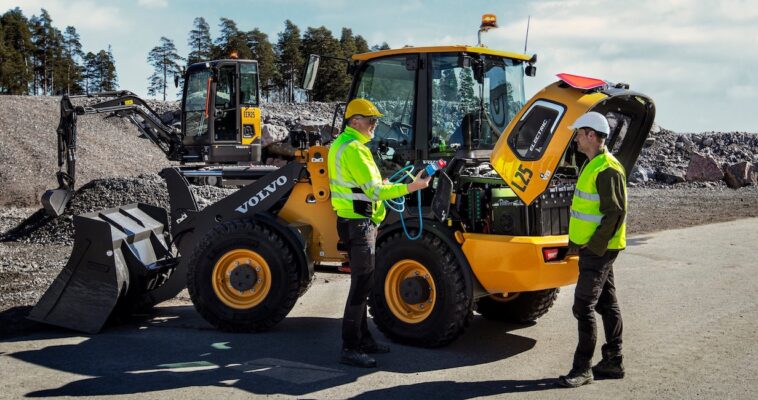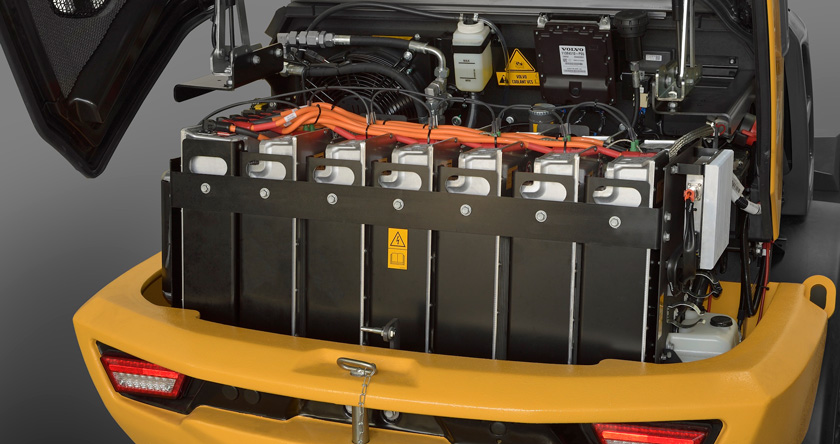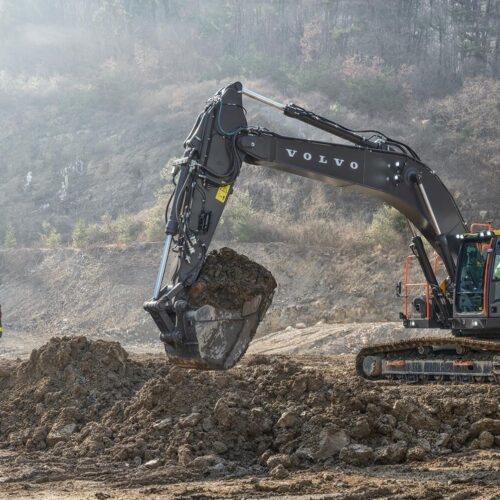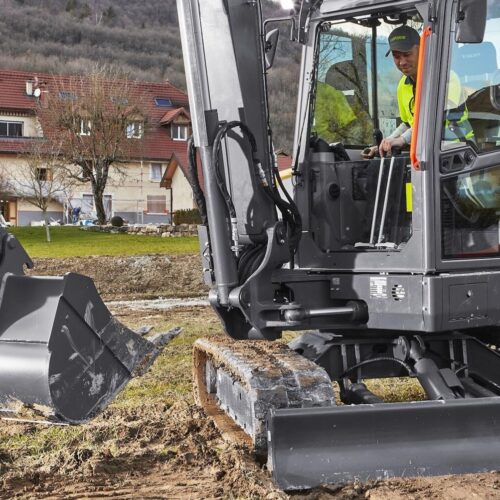How To Maintain Electric Heavy Equipment
How different is it to maintain electric construction equipment versus diesel construction equipment? The short answer is that with electric, it’s much simpler — hardly any maintenance is needed at all on […]


How different is it to maintain electric construction equipment versus diesel construction equipment? The short answer is that with electric, it’s much simpler — hardly any maintenance is needed at all on the electric components. But if you’re looking for a little more detail, keep reading.
A major maintenance-related advantage of electric equipment is that the machines shut off when not in use, so they’re not racking up idle hours like a diesel machine that needs to keep fuel and fluids moving. As a bonus, fewer hours can help reduce your total cost of ownership and improve the resale value of the electric machine.
It follows, then, that DEF and filters aren’t needed on electric equipment. Essentially, the only supplies required are grease and hydraulic oil. This is much different than a conventional machine that requires fluid, filter and component checks as often as every day, with additional cyclical preventive fluid and filter maintenance.

Table of Contents
Electric Equipment Safety and Training Are Key
Electric components like the lithium-ion battery, inverter, AC to DC power converter, battery management unit and charging plug just need visual and functional inspections. Any components not working would be replaced rather than repaired.
The electrical components are sealed and guarded, and technicians should be trained to properly disconnect the high-voltage power to any parts before they’re removed and replaced. Volvo CE, for example, has very stringent training and qualification requirements to certify technicians to work on electric machines, whether it be the electrical or non-electrical components.
Because we’re talking about machines using electricity, much of the additional training needed for technicians will be about safety. Some of the concepts they’ll need to learn include how an AC 3-phase motor functions, Ohm’s law (the relationship between voltage, current and resistance in a circuit), Fleming’s left- and right-hand motor and generator rules, and the effect that current flow has on a magnetic field. Other topics unique to electric heavy equipment are inverter function, onboard charging system operation and how a lithium-ion battery works.
This may sound like a big shift in what technicians need to know, but it’s part of our evolving industry. It’s just like when telematics and in-cab displays started becoming more prominent — technicians in the shop had to learn how to service those as well.
Charging systems may also need service at times. That would be dictated by the manufacturer of those items, which will typically be different from the machine manufacturer.
A Valuable Shift
The lifetime of battery-electric components should be equal to or better than that of the diesel engine on a conventional machine. We conservatively estimate that users will see a 35% savings in maintenance cost and time over the life of the machines we offer. And our six-year warranty for electric components provides some extra peace of mind.
Though the shift to electric requires some training, the overall maintenance needed for electric heavy equipment is much simpler and less frequent. With electrification expected to grow exponentially in the coming years, it’s a worthwhile investment of technicians’ time.
Categories: Construction Equipment, Electric Equipment, Insights

